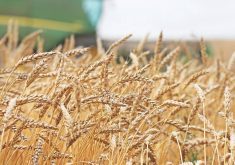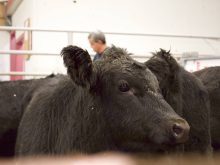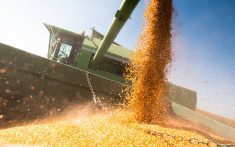Western Canadian feeder cattle prices were $2 to $4 per hundredweight higher on average in comparison to week-ago levels. Fed cattle edged up $1-$2/cwt, reaching $107/cwt, which provided a firm tone in the feeder complex. Early “fall backgrounded calves” started to come on the market last week and there was also a buildup of cattle due to the wintry conditions during January. The market was very firm despite larger available supplies as major feedyards continue to show strong buying interest at the higher levels.
Feeder steers weighing 580 pounds touched $152/cwt in central Alberta while 816-lb. steers averaged $126/cwt.
Read Also

Canada’s global trade gap narrows; U.S.-bound exports hit new low
Canada’s trade deficit narrowed in December even as its share of exports to the United States dropped to the lowest level on record, barring two months during the peak of the COVID-19 pandemic, data showed on Thursday.
Feeder cattle futures have been making higher highs and higher lows; however, on the last wave, the futures made a lower high and a lower low. A couple weeks ago I mentioned the momentum was easing at the higher levels. U.S. feeder cattle values were $2-$3/cwt lower last week with the major snowstorm setting a negative tone.
Adverse feedlot conditions are starting to cause inefficient performance in the U.S. southern Plains. Feedlot operators don’t want to bring in replacement cattle in the current environment, which is weighing on the U.S. market.
Barley prices in southern Alberta continue to trade under $190 per tonne, sustaining a favourable margin structure. Statistics Canada reported Dec. 31 barley stocks at 5.7 million tonnes, down 32.5 per cent from last year. Given current price relationships between barley, wheat and canola, barley acres could be down 10 per cent in 2011, resulting in higher prices longer-term. Keep in mind corn is likely in for multi-year highs as the U.S. cannot replenish stocks above the five-year average over the next crop year.
— Jerry Klassen is a commodity market analyst in Winnipeg and maintains an interest in the family feedlot in southern Alberta. He writes an in-depth biweekly commentary, Canadian Feedlot and Cattle Market Analysis, for feedlot operators in Canada. He can be reached by email at [email protected] or at 204-287-8268 for questions or comments.

















